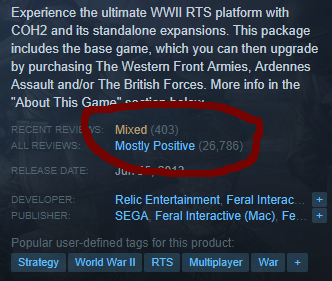Recently, Epic Games, makers of the Unreal Engine, unveiled their online digital games store. This store aims directly at the ever popular Steam, and takes a pretty hefty swing with it’s ultra-generous profit sharing for developers. If your game is developed on Unreal Engine, it’s even more generous. At a glance, this is good for developers and gamers. It’s good for developers because money. Just how good for gamers it will be is the big question. The over arching ‘competition is good for the consumer’ mantra certainly applies, but right now I wouldn’t call it competition.
Epic Games has a long road ahead of them. They have a lower user base, a smaller library of games, and almost no ‘features’ to offer. This is certainly to be expected at the beginning of any new online store front. So far Epic Games is offering free games every two weeks for next year. This is good for gamers because they get free games, and it’s good for Epic Games and developers because it brings people to the platform. Several games are also launching exclusively on the Epic Games Store, the biggest title so far being Ubisoft’s The Division II. Given this type of progress is taking place, I’m inclined to believe their progress will continue. But. The longer their improvements take, the worse it becomes for gamers.

Customer review systems aren’t easy to implement. You need something that’s flexible, and that can change over time to reflect major patches and content changes. Only being able to rate a game at one point in it’s development is a minor help at best. This is best illustrated by the ‘review bomb’ practice. Games get review bombed because developers did something their customers didn’t like. If the reason has merit behind it, the review bombings will continue until conditions improve (For example, adding in microtransactions a month after the game launches). If the reason is petty or temporary, the bad reviews will fade away pretty quick, or gamers can take the time to read the negative reviews and judge for themselves whether to continue their purchase or not (For example, unstable servers on launch day for a massively multiplayer online game).
Thankfully Steam has two categories, a lifetime rating, and a shorter-term rating. I think this is a good system to deal with review bombs. I personally have played games despite review bombs, although I’d say that most of the time I have regretted it later. Epic Games will need to come up with at least as good a system, if not copy it completely. Of course if they do copy it, they’ll get raked over the coals, so there’s that too.

Personally, I think Epic Games will add a customer review system to their store. They’ve made lots of good decisions with Fortnite and the Unreal Engine. I think they understand the value of a customer’s opinion. Not having a customer review system would just be so colossally anti-consumer that I think they would either be brow-beaten into it, or outright fail in their endeavor. I want them to succeed though. Steam has been pretty stagnant as far as innovating. Not that they don’t offer a good service, I just feel like they could do a whole lot more. I’m not against Steam either. Goodness knows I’m tired of downloading new launchers, but if Steam and the Epic Games Store push each other to improve, I think it’s a win for everyone.
Update
I recently found this quote from an Epic Games Store representative. Apparently, user reviews will be implemented only if the developer opts-in.
We’re working on a review system for the Epic Games store based on the existing one in the Unreal Engine marketplace. It will be opt-in by developers. We think this is best because review bombing and other gaming-the-system is a real problem.
— Tim Sweeney (@TimSweeneyEpic) December 26, 2018
I think this is an incredibly bad sign. What will stop a developer from opting in only if they’re getting good reviews? Opting out when they’re about to implement micro transactions? This literally has no upside for gamers, and gives no incentive for developers to be fair. I’m going to have to think long and hard about whether I want to support this platform in the future.